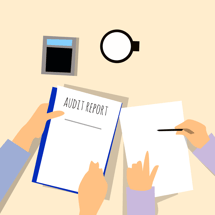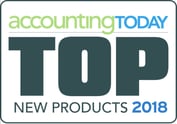You should listen to the first 6 minutes of the Journal of Accoutancy annual technology podcast: fascinating. Experts predict technology will kill Audit as we know it, with CPAs moving to process and systems audits. Will this also impact Private Equity, Investment Banking, Personal Advisory, and Management Consulting?
Do you want to understand and prepare for the changes these experts predict?
You can read an excerpt below (edited for length; empahsis added) then ask yourself a few questions.

"The accounting profession sits on the cusp of unprecedented change. Transformative technologies such as automated data analytics will reshape virtually every corner of the accounting world — changing the way CPAs work, whom they work with, where they do their jobs, and how they connect with clients and colleagues. The very nature of core services including tax and audit will evolve by leaps and bounds into something dramatically different. For CPAs to survive and thrive, they will need to learn — and unlearn — on a scale and at a pace that can seem overwhelming.
To help CPAs prepare, the JofA gathered three of the profession’s top technology experts for its annual accounting technology roundtable. The participants included:
- Al Anderson, CPA, owner of the accounting and insurance advisory firm ACCOUNTability Plus, leader of the AICPA Rutgers Data Analytics Initiative, and an adviser to the AICPA’s future of audit initiatives.
- Rick Richardson, CPA/CITP, CGMA, founder and CEO of Richardson Media and Technologies.
- Amanda Wilkie, a consultant with Boomer Consulting and former Chief Information Officer at regional firm WithumSmith+Brown.
This first of a two part series focuses on the radical changes emerging technologies will bring to accounting — and accountants — over the next 1–5 years.
Rick, let’s start with you. You’ve been delivering a keynote speech forecasting tech futures for decades. How do you see technology transforming the accounting profession over the next 5 years?
Rick: Well I think if we look back at it Jeff I have to tell you that I think the next five to ten years are probably going to be bigger in change in uprooting and disruption in any time we’ve had in the accounting profession, period. If you look at the breakdown of the profession, the top 100 firms I think over the next 5-8 years are going to see much more consolidation than we’ve seen in the past. The top 4 are certainly going to be acquiring some of those in the next 20 and I think there will be a fair amount of work trying to isolate a center section in that 100 firms and that’s I think where most of the auditing is going to get done. Jeff I know wants to talk some more about that as we get into a little bit later but its clear that auditing just because of the impact of blockchain is going to be done by firms with far more technical ability than we’ve seen in the past.
Al: I think a large number of firms unfortunately are going to disband. They are either going to cease holding themselves out as CPAs or they’re going to generalize their business into more general advisory services with [traditional tax and audit] maybe as an 'extra' if you will. The ones that I’m most excited about are the small firms that are going to start collaborating with each other, creating small networks where they can share niche expertise¹ with each other and call on each other when their client needs a skill that they don’t have. So, if I had to look 5-10 years out, I think the biggest issues are going to be consolidation in the upper end of the profession, a lot of drop out in the small end but a lot of very successful collaboration as well.
Okay, Al you’ve got a lot of experience on the audit side, you were a national director of Audit for a large national firm and you’ve been a long-time advisor to the AICPA’s ‘Audit of the Future’ efforts. How do you see technology advancements transforming the audit?
Al: Well, I think technology advances are going to come in two tranches if you will. We have to think in the context of what is the audit of the future, given the technology as it continues to advance. The presumption is that we’re still going to be auditing a historic set of financial statements and in the first tranche, technology will certainly enhance and enable much greater leveraging of data. Audits will become very much data-driven and through the use of data analytics and AI, it will really change the way the historical financial statement becomes audited. But the second tranche, as technology continues to advance, [we have to ask are financial statements] what’s really going to be audited? I tend to look at it this way, accountants and auditors [are] historians, we record history and then the auditor reports the historical set of financial statements. And oftentimes it’s characterized as looking in the rear-view mirror. So my question is how valuable is the rear-view mirror in a driverless car? So the next question is how valuable is a historical financial statement audit as technology continues to advance? I fully believe that the assurance model for our profession will, through the advances of tech, will ultimately migrate in the second tranche to assurance on people and the processes and the systems that they are using². So it’s going to be an interesting transformation and as Rick called it "disruption” because there is going to be significant disruption as these advances seriously outpace the way some CPA firms have currently been responding to technology today." © 2018 Association of International Certified Public Accountants.
Questions to consider:
- If operational audits yield actionable growth plans, will CPAs dominate the private company business consulting market?
- How will operational audits (operational transparency) impact Investment Banking and M&A? Can this accelerate private company access to the $1.7 Trillion in Private Equity 'Dry Powder' now stuck on the sidelines?
- Are you interested to learn how pros like you use process audits to win new engagements?
- Do your clients expect you to be the one delivering the analyses and executable plans to build strong, valuable companies? How will you?
- Does it make sense to learn about the technology discussed by these experts?
We'd like to know what you think. Please post a comment, or email blog@corevalueforadvisors.com.
Share this article with your colleagues, it's easy:
¹ Business consultants are using a standardized methodology to collaborate on engagements today. They act as a peer to the CEO performing complete operational analyses; the methodology aligns niche experts (e.g. Sales, HR) around defined best practices. This methodology and collaboration is accessible through CoreValue Advisor Software.
² Professional advisors including CPAs perform operational audits using CoreValue today. The analysis creates and executable growth plan to increase operational strength (therefore value) by an average 27%, and increases GR an average 21.63% annually.
